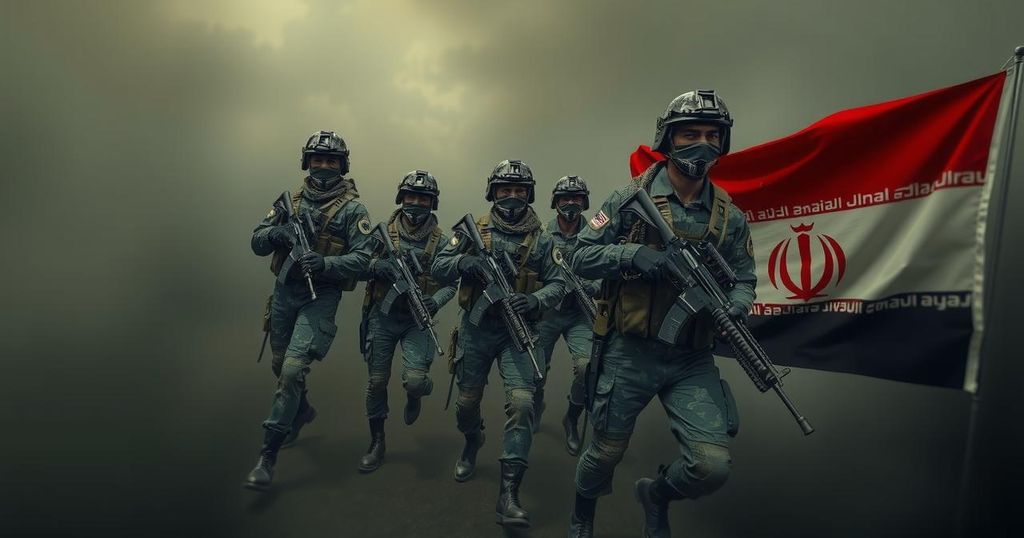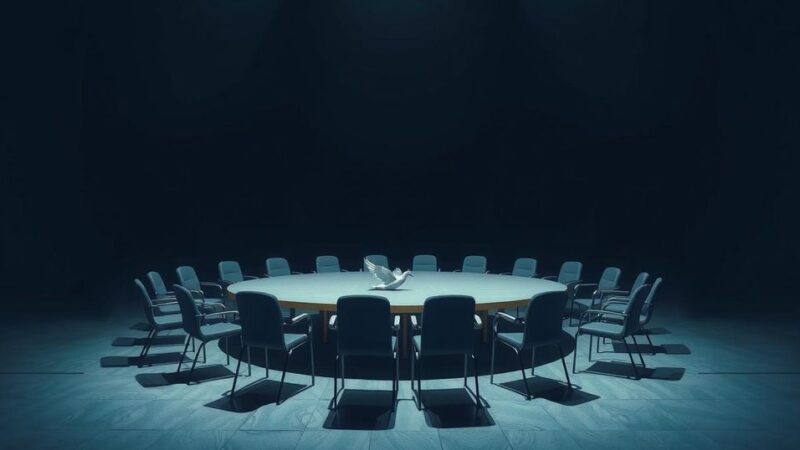Iraqi militias are coordinating with Iran to respond to Israeli attacks, with leaders asserting their right to retaliate. This collaboration follows threats from Iranian leadership, indicating an imminent response to Israel’s military actions. Iraqi officials express concern over possible escalations that could involve US interests, reflecting the complex dynamics of regional security.
Haidar al-Lami, a key member of Harakat Hezbollah al-Nujaba, which is classified as a terrorist militia by the United States, indicated in a recent interview that his organization is actively collaborating with Iran to formulate a response aimed at Israel. He stated, “the Islamic Republic has the right to target the Zionist entity from anywhere within Iraq.” Furthermore, al-Lami emphasized that Israel’s aggressive actions against Iran have justified the operations of what he refers to as the “Islamic Resistance,” suggesting an upcoming escalation characterized by the use of advanced missile systems. This discussion takes place within a broader context of heightened tensions following Iran’s Supreme Leader, Ayatollah Ali Khamenei, pledging a “crushing response” to an Israeli strike on October 26 against Iranian military assets. Al-Lami characterized the Israeli action as a violation of Iraqi sovereignty and international protocols, asserting that the primary objective of the resistance is to retaliate against Israel before targeting American bases. Reports indicate that any forthcoming Iranian retaliation may involve drone and missile strikes originating from Iraq. The Iraqi government, led by Prime Minister Mohammed Shia al-Sudani, remains apprehensive about the potential repercussions of such a military response, especially given its lack of diplomatic ties with Israel. The prime minister’s administration seeks to navigate a delicate balance between its relationships with both Iran and the United States, which could be jeopardized by any conflict escalation. Notably, the militia factions have cautioned the Iraqi government against interfering with their planned operations. As tensions mount, there is increasing concern regarding the potential for Iraq to become a battlefield in a larger regional conflict, with Iraqi officials recognizing the dilemma of Iranian retaliation from its territory. Such a scenario could, as suggested by an unnamed political official, provoke Israeli military response against installations within Iraq, further complicating regional security dynamics.
The recent tensions between Israel and Iran have prompted Iraqi militias, particularly Harakat Hezbollah al-Nujaba, to seek increased coordination with Iran in response to perceived aggression from Israel. This collaboration is set against the backdrop of ongoing military and political fraught relations in the region, where the balance of power is heavily influenced by Iran’s military capabilities and Iraq’s political stances. The U.S. presence in Iraq adds another layer of complexity, as Iraqi officials navigate relationships with both Iran and the United States amidst rising threats of military engagement.
In summary, the coordination between Iraqi militias and Iran highlights the complexities of regional politics, particularly in light of Israel’s recent military actions against Iranian targets. The potential for retaliation from Iraq raises significant concerns for the Iraqi government, which is already in a precarious position due to its alliances and lack of diplomatic relations with Israel. The situation underscores the urgent need for diplomatic channels to prevent escalation into a broader conflict.
Original Source: www.jpost.com






